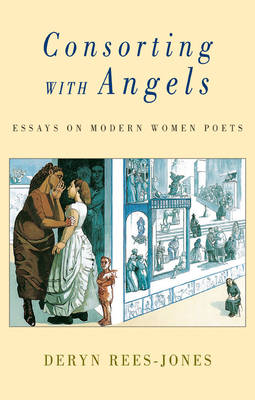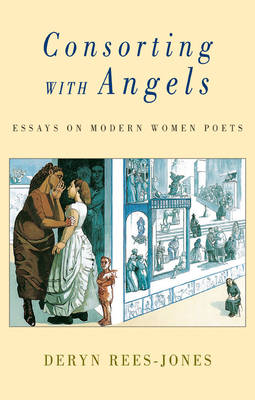
- Retrait gratuit dans votre magasin Club
- 7.000.000 titres dans notre catalogue
- Payer en toute sécurité
- Toujours un magasin près de chez vous
- Retrait gratuit dans votre magasin Club
- 7.000.0000 titres dans notre catalogue
- Payer en toute sécurité
- Toujours un magasin près de chez vous
15,45 €
+ 30 points
Description
In this pioneering critical study, Deryn Rees-Jones discusses the work of some of the major women poets of the last hundred years, showing how they have explored what it has meant to be a woman poet writing in a male-dominated poetic tradition. Beginning with Edith Sitwell, Stevie Smith, Sylvia Plath and Anne Sexton, she shows how an older generation resisted easy categorisation by forging highly individual aesthetics and self-presentation. For Edith Sitwell, the woman poet was to be 'as eloquent as a peacock'. Stevie Smith compared poetry to 'a strong explosion in the sky' but did not consider gender to be an important factor. Sylvia Plath, who admired the work of both these poets, wanted to write in a way which was 'not quailing and whining' but to produce 'working, sweating, heaving poems born out the way words should be said.' Anne Sexton, in her poem 'Consorting with Angels', writes that she is 'tired of the gender of things' 'not a woman anymore, / not one thing or the other'. But despite their brilliance, their perceived eccentricity - along with the suicides of Plath and Sexton - made these major figures difficult acts to follow. Deryn Rees-Jones then considers the poetry written in their wake, with essays covering poets such as Moniza Alvi, Carol Ann Duffy, Vicki Feaver, Lavinia Greenlaw, Selima Hill, Kathleen Jamie, Jackie Kay, Gwyneth Lewis, Medbh McGuckian, Alice Oswald and Jo Shapcott. While these women all have very different writing styles, Rees-Jones argues that common strategies emerge which link them to their poetic predecessors, showing how they have developed an aesthetic which allows them to explore their femininity. Taking account of the importance to these women of the work of their male contemporaries, her incisive essays open up new perspectives on the poetry of the 20th and 21st centuries. Deryn Rees-Jones's companion anthology Modern Women Poets is published at the same time as Consorting with Angels.
Spécifications
Parties prenantes
- Auteur(s) :
- Editeur:
Contenu
- Nombre de pages :
- 298
- Langue:
- Anglais
Caractéristiques
- EAN:
- 9781852243920
- Date de parution :
- 10-12-05
- Format:
- Livre broché
- Format numérique:
- Trade paperback (VS)
- Dimensions :
- 160 mm x 216 mm
- Poids :
- 462 g

Les avis
Nous publions uniquement les avis qui respectent les conditions requises. Consultez nos conditions pour les avis.






